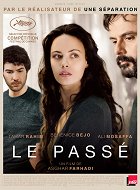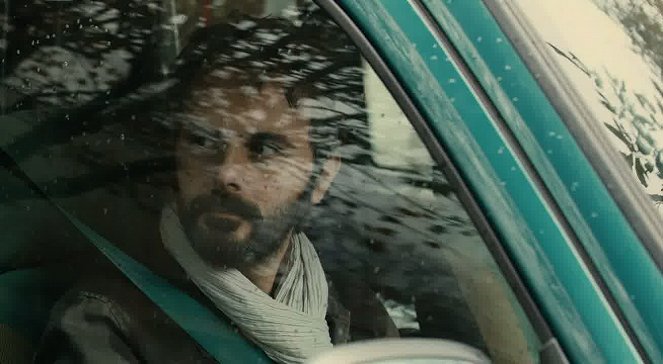Réalisation:
Asghar FarhadiScénario:
Asghar FarhadiPhotographie:
Mahmoud KalariMusique:
Evgueni GalperineActeurs·trices:
Bérénice Bejo, Ali Mosaffa, Tahar Rahim, Pauline Burlet, Sabrina Ouazani, Bábak Karímí, Valeria Cavalli, Elyes Aguis, Jeanne Jestin (plus)VOD (1)
Résumés(1)
Après quatre années de séparation, Ahmad arrive à Paris depuis Téhéran, à la demande de Marie, son épouse française, pour procéder aux formalités de leur divorce. Lors de son bref séjour, Ahmad découvre la relation conflictuelle que Marie entretient avec sa fille, Lucie. Les efforts d'Ahmad pour tenter d'améliorer cette relation lèveront le voile sur un secret du passé. (Memento Films Distribution)
(plus)Vidéo (5)
Critiques (4)
A long reverberation of The Separation. The plot structure of The Past, with its too cautiously revealed story of intertwined relationships, cannot hide the fact that Farhadi primarily intended to incessantly surprise the viewer. Because of that, the characters are forced into taking escalating actions whose melodramatic nature rather hinders the perception of the film as a subdued psychological drama. The result is an unconvincing expression of the well-known axiom “you can’t escape the past” (in the most apt metaphor of the film, unfortunately used immediately at the beginning, the raindrops on the car’s windshield are the past, obstructing the view and the way forward). It is not only unconvincing, but also feeds off of the suffering of the characters, particularly Marie (the pleasantly informal Bérénice Bejo), whose life is caught between two men. However, everyone else around her is also unhappy as they fiercely try to restore the broken ties between them, while viewers try to find their bearings in the matter of who is actually whose real father/mother/daughter/son or step-parent/child. If I want to be moved by the stories of unhappy people, I can just as well watch a full-blooded melodrama that doesn’t pretend to be important and goes straight to the emotional marrow. 70%
()
Few people (if anybody) in contemporary cinema know how to capture the confusion, complexity and the related ambiguity of inter-personal relations as well as Farhadi. He enters his characters’ life, documenting a certain period without explaining what preceded and what will follow. He firmly avoids saying the unsaid and offering a solution. Even so (or maybe because of which) he has an amazing talent for getting right into the skin of his characters. He comes, captures, crushes and leaves. The biggest (and the only) disappointment is that Farhadi is trying, either intentionally or unawares, a sort of more intimate follow up to The Separation. In fact this could easily have been a “years later" spinoff. They could have started off with Simin and her daughter emigrating to the West...
()
A drama that grows and fluctuates with each passing minute. At the same time, this was my first meeting with Iranian director Asghar Farhadi. Well, I have to say that it wasn’t easy at all with those characters. Not to mention the running time. But the moment I was shown the final sequence of the movie, a tear dropped from my eye, quite unexpectedly.
()
An excellent relationship drama about four characters and the consequences of past decisions. Nader and Simin, a Separation was more interesting and exotic for the Central European audience, but The Past drops this structure – the characters behave in a typical “European” fashion, which makes it easier to relate to them and understand the suffering and moral uncertainties they are experiencing.
()



Annonces